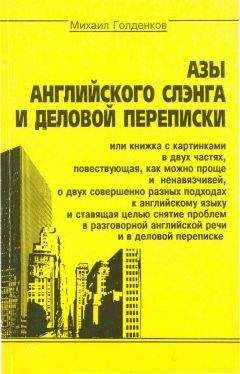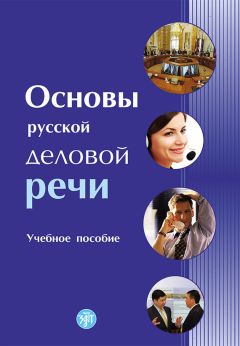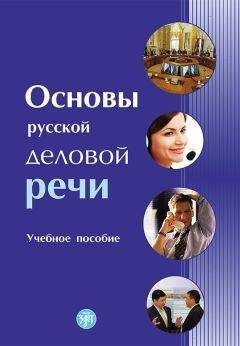Илья Франк - Английский язык с Р. Киплингом. Истории просто так
clothes [klquDz], outrigger ['aut"rIgq], prevent [prI'vent]
The Little Girl Daughter is sitting quietly in the middle of the canoe. She knows she is quite safe with her Daddy. The Eldest Magician is standing up at the other end of the canoe beginning to make a Magic. He has left his magic throne on the beach, and he has taken off his clothes so as not to get wet, and he has left the Magic Cloud behind too, so as not to tip the boat over. The thing that looks like another little canoe outside the real canoe is called an outrigger. It is a piece of wood tied to sticks, and it prevents the canoe from being tipped over. The canoe is made out of one piece of wood, and there is a paddle at one end of it.
THE CAT THAT WALKED BY HIMSELF
Кот, который гулял сам по себе
Hear and attend and listen (слушайте, и внимайте, и воспринимайте); for this befell and be-happened and became and was (ибо это случилось, и приключилось, и произошло, и было; to happen — случаться, происходить; to become — происходить), O my Best Beloved, when the Tame animals were wild (О мои Самые Любименькие, когда Домашние животные были дикими). The Dog was wild (Пес был дикий), and the Horse was wild (и Лошадь была дикая), and the Cow was wild (и Корова была дикая), and the Sheep was wild (и Овца была дикая), and the Pig was wild (и Свинья была дикая) — as wild as wild could be (такая дикая, какой только могла быть) — and they walked in the Wet Wild Woods[143] by their wild lones (и они гуляли во Влажных Диких Лесах[144] в своем диком одиночестве; lone — одинокий, уединенный; to be by one’s lonesome — быть в одиночестве). But the wildest of all the wild animals was the Cat (но самым диким из всех диких животных был Кот). He walked by himself, and all places were alike to him (он гулял сам по себе, и все места были одинаковы для него).
wild [waIld], horse [hLs], alike [q'laIk]
Hear and attend and listen; for this befell and be-happened and became and was, O my Best Beloved, when the Tame animals were wild. The Dog was wild, and the Horse was wild, and the Cow was wild, and the Sheep was wild, and the Pig was wild — as wild as wild could be — and they walked in the Wet Wild Woods by their wild lones. But the wildest of all the wild animals was the Cat. He walked by himself, and all places were alike to him.
Of course the Man[145] was wild too (конечно, Человек тоже был диким). He was dreadfully wild (он был ужасно диким). He didn’t even begin to be tame till he met the Woman (он даже не начинал приручаться, пока не встретил Женщину; tame — прирученный, одомашненный; укрощенный /о животных/; послушный, податливый, уступчивый /о животном, человеке/), and she told him (и она сказала ему) that she did not like living in his wild ways (что ей не нравится жить в его дикой манере = в его дикости). She picked out a nice dry Cave (она выбрала симпатичную сухую Пещеру), instead of a heap of wet leaves, to lie down in (вместо груды влажных листьев для лежания); and she strewed clean sand on the floor (и она насыпала чистого песка на пол); and she lit a nice fire of wood at the back of the Cave (и она разожгла приятный костерок из дров в задней части Пещеры; to light — зажигать); and she hung a dried wild-horse skin, tail-down (и она повесила высушенную шкуру дикой лошади хвостом вниз; to hang — вешать, развешивать, подвешивать), across the opening of the Cave (на входе Пещеры); and she said (и она сказала), ‘Wipe your feet, dear (вытирай /свои/ ноги, дорогой), when you come in (когда ты входишь), and now we’ll keep house (и теперь мы будем вести хозяйство; to keep house — вести хозяйство: «держать дом»).’
course [kLs], strew [strH], floor [flL]
Of course the Man was wild too. He was dreadfully wild. He didn’t even begin to be tame till he met the Woman, and she told him that she did not like living in his wild ways. She picked out a nice dry Cave, instead of a heap of wet leaves, to lie down in; and she strewed clean sand on the floor; and she lit a nice fire of wood at the back of the Cave; and she hung a dried wild-horse skin, tail-down, across the opening of the Cave; and she said, ‘Wipe your feet, dear, when you come in, and now we’ll keep house.’
That night, Best Beloved (в тот вечер, Самые Любименькие), they ate wild sheep roasted on the hot stones (они ели дикого барашка, поджаренного на горячих камнях), and flavoured with wild garlic and wild pepper (и приправленного диким чесноком и диким перцем); and wild duck stuffed with wild rice and wild fenugreek and wild coriander (и дикую утку, начиненную диким рисом, и диким пажитником, и диким кориандром; fenugreek — пажитник, шамбала /бобовая мелкосеменная культура/); and marrow-bones of wild oxen (и мозговые косточки диких быков); and wild cherries, and wild grenadillas (и дикую вишню, и дикие гренадиллы[146]). Then the Man went to sleep in front of the fire ever so happy (потом Человек уснул перед костром чрезвычайно счастливый); but the Woman sat up (но Женщина села), combing her hair (расчесывая волосы). She took the bone of the shoulder of mutton (она взяла кость из плеча барашка) — the big fat blade-bone (большую жирную лопатку) — and she looked at the wonderful marks on it (и она посмотрела на удивительные знаки на ней), and she threw more wood on the fire (и она бросила еще дров = подбросила дров в костер; to throw), and she made a Magic (и /она/ сотворила Волшебство). She made the First Singing Magic in the world (она сотворила Первое Сопровождаемое Пением Волшебство в мире).
fenugreek ['fenjugrJk], coriander ["kOrI'xndq], comb [kqum]
That night, Best Beloved, they ate wild sheep roasted on the hot stones, and flavoured with wild garlic and wild pepper; and wild duck stuffed with wild rice and wild fenugreek and wild coriander; and marrow-bones of wild oxen; and wild cherries, and wild grenadillas. Then the Man went to sleep in front of the fire ever so happy; but the Woman sat up, combing her hair. She took the bone of the shoulder of mutton — the big fat blade-bone — and she looked at the wonderful marks on it, and she threw more wood on the fire, and she made a Magic. She made the First Singing Magic in the world.
Out in the Wet Wild Woods all the wild animals gathered together (снаружи в Диких Дремучих Дебрях все дикие животные собрались вместе /там/) where they could see the light of the fire a long way off (откуда они издалека видели огонь костра), and they wondered what it meant (и они стали гадать, что это значит).
Then Wild Horse stamped with his wild foot and said (потом Дикая Лошадь топнула своей дикой ногой и сказала), ‘O my Friends and O my Enemies (О мои Друзья и О мои Враги), why have the Man and the Woman made that great light in that great Cave (зачем Человек и Женщина развели этот огромный огонь в той Пещере), and what harm will it do us (и какой вред это принесет нам)?’
light [laIt], friend [frend], harm [hRm]
Out in the Wet Wild Woods all the wild animals gathered together where they could see the light of the fire a long way off, and they wondered what it meant.
Then Wild Horse stamped with his wild foot and said, ‘O my Friends and O my Enemies, why have the Man and the Woman made that great light in that great Cave, and what harm will it do us?’
Wild Dog lifted up his wild nose and smelled the smell of roast mutton (Дикий Пес поднял свой дикий нос и учуял запах жареной баранины), and said (и сказал), ‘I will go up and see and look, and say (я поднимусь, и посмотрю, и погляжу, и скажу); for I think it is good (ибо я думаю, что это хорошо). Cat, come with me (Кот, идем со мной).’
‘Nenni!’ said the Cat (нетушки! — сказал Кот). ‘I am the Cat who walks by himself (я Кот, который гуляет сам по себе), and all places are alike to me (и все места для меня одинаковы). I will not come (я не пойду).’
roast [rqust], mutton ['mAtqn], with [wID]
Wild Dog lifted up his wild nose and smelled the smell of roast mutton, and said, ‘I will go up and see and look, and say; for I think it is good. Cat, come with me.’
‘Nenni!’ said the Cat. ‘I am the Cat who walks by himself, and all places are alike to me. I will not come.’
‘Then we can never be friends again (тогда мы /не/ сможем никогда снова быть друзьями),’ said Wild Dog, and he trotted off to the Cave (сказал Дикий Пес и /он/ поспешил прочь к Пещере). But when he had gone a little way the Cat said to himself (но когда он немного прошел, Кот сказал себе) ‘All places are alike to me (все места одинаковы для меня). Why should I not go too and see and look (почему бы мне тоже не пойти, и не посмотреть, и поглядеть) and come away at my own liking (и уйти, когда мне захочется; liking — предпочтение; склонность, вкус, пристрастие).’ So he slipped after Wild Dog softly, very softly (и он тихо, очень тихо скользнул за Диким Псом), and hid himself where he could hear everything (и спрятался там, где он мог все слышать; to hide).
never ['nevq], gone [gOn], own [qun]
‘Then we can never be friends again,’ said Wild Dog, and he trotted off to the Cave. But when he had gone a little way the Cat said to himself, ‘All places are alike to me. Why should I not go too and see and look and come away at my own liking.’ So he slipped after Wild Dog softly, very softly, and hid himself where he could hear everything.
When Wild Dog reached the mouth of the Cave (когда Дикий Пес добрался до входа в Пещеру) he lifted up the dried horse-skin with his nose (он поднял высушенную шкуру лошади своим носом) and sniffed the beautiful smell of the roast mutton (и вдохнул превосходный запах жареной баранины; to sniff — вдыхать через нос; нюхать; обнюхивать, принюхиваться), and the Woman, looking at the blade-bone (а Женщина, глядя на лопатку), heard him, and laughed, and said (услышала его, и засмеялась, и сказала; to hear — слышать), ‘Here comes the first Wild Thing out of the Wild Woods (вот идет = пришла первая Дикая Тварь из Диких Дебрей), what do you want (что тебе нужно)?’
Wild Dog said (Дикий Пес сказал), ‘O my Enemy and Wife of my Enemy (О мой Враг и Жена моего Врага), what is this that smells so good in the Wild Woods (что это пахнет так вкусно в Диких Дебрях)?’
reach [rJC], enemy ['enImI], want [wOnt]
When Wild Dog reached the mouth of the Cave he lifted up the dried horse-skin with his nose and sniffed the beautiful smell of the roast mutton, and the Woman, looking at the blade-bone, heard him, and laughed, and said, ‘Here comes the first Wild Thing out of the Wild Woods, what do you want?’
Wild Dog said, ‘O my Enemy and Wife of my Enemy, what is this that smells so good in the Wild Woods?’
Then the Woman picked up a roasted mutton-bone (тогда Женщина подняла поджаренную баранью кость) and threw it to Wild Dog, and said (и бросила ее Дикому Псу и сказала), ‘Wild Thing out of the Wild Woods, taste and try (Дикая Тварь из Диких Дебрей, попробуй и испробуй).’ Wild Dog gnawed the bone (Дикий Пес обглодал кость), and it was more delicious than anything he had ever tasted (и она оказалась вкуснее всего, что он когда-нибудь пробовал), and he said (и он сказал), ‘O my Enemy and Wife of my Enemy (О мой Враг и Жена моего Врага), give me another (дай мне еще /одну/).’
The Woman said (Женщина сказала), ‘Wild Thing out of the Wild Woods (Дикая Тварь из Диких Дебрей), help my Man to hunt through the day and guard this Cave at night (помогай моему Мужчине охотиться днем и охраняй эту Пещеру ночью), and I will give you as many roast bones as you need (и я буду давать тебе столько жареных косточек, сколько тебе понадобится).’
taste [teIst], gnaw [nL], delicious [dI'lISqs]




